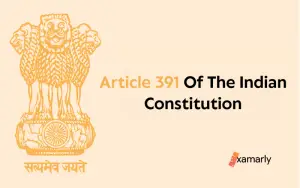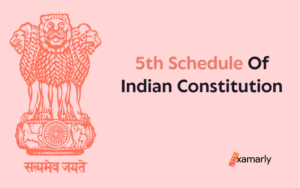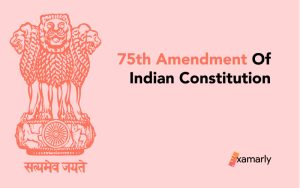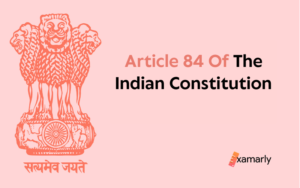Philosophy Optional for UPSC is one of the most popular subjects, with approximately eight hundred to a thousand candidates opting for it. It has been the subject of choice for toppers in recent times, with Athar Aamir Ul Shafi Khan securing the second rank in the 2015 CSE.
The success rate of Philosophy is higher than other optional subjects, including Public Administration, and Political Science. This is due to the fact that the syllabus of Philosophy is much smaller than that of the other subjects. A lot of time can be saved during preparation, and studying philosophy also enables one to understand and evaluate Paper IV, which involves essays, ethics, and integrity aptitude.
Read the article to figure out everything from success rate to topic weightage, from booklist to UPSC philosophy optional strategy for IAS Exam.
- What Is Philosophy Optional For UPSC?
- Who Can Opt For Philosophy Optional In UPSC Exam?
- How Many Take Philosophy Optional?
- Philosophy Optional Pros And Cons
- UPSC Optional Philosophy Syllabus
- Topic-Wise Weightage Of UPSC IAS Philosophy Optional
- Topic-Wise Analysis Of Philosophy UPSC Optional Paper-I
- Topic-wise Analysis of Philosophy UPSC Optional Paper-II
- Philosophy Optional Preparation Strategy
- Structure For Writing Answers In Philosophy Option
- Booklist for Philosophy Optional For UPSC
- Conclusion
- FAQs
What Is Philosophy Optional For UPSC?
If you want to score well in the Philosophy section of the UPSC examination, you must know about the syllabus and how to approach the questions. Philosophy is an elementary subject that involves studying the general and fundamental questions regarding life, and the way we live it. The syllabus of philosophy is quite short, and it takes around two months to cover the topics thoroughly.
Who Can Opt For Philosophy Optional In UPSC Exam?
Any candidate, regardless of academic experience, may choose a philosophy optional subject. Anyone who can articulate their thoughts coherently can choose to take philosophy optional. But consistent practice will lead to this rational approach.
Since it is a logical subject, candidates with technical backgrounds favor philosophy as an optional topic. Additionally, candidates with backgrounds in humanities choose philosophy as an optional paper since it is largely non-technical.
In short, it is not necessary to be from a background in Philosophy, to opt for this optional paper.
How Many Take Philosophy Optional?
Philosophy Optional Success Rate
| Year | How Many Candidates Appeared In An Exam? | How Many Candidates Passed The Exam? | Success rate (%) |
| 2015 | 847 | 47 | 5.5 |
| 2014 | 908 | 64 | 7 |
| 2013 | 736 | 58 | 7.9 |
| 2012 | 1116 | 99 | 8.9 |
| 2011 | 900 | 74 | 8.2 |
Philosophy Optional Toppers
| Year | Name | Rank |
| 2017 | Garima Agrawal | 241 |
| 2017 | Juhi Jalota | 122 |
| 2017 | Hemant K. Singh | 359 |
| 2016 | M U Sri Rama Vinay | 410 |
| 2015 | Athar Aamir Ul Shafi Khan | 2 |
| 2015 | Ambarish V L Vemuri | 150 |
| 2015 | Jatin Lal | 42 |
| 2015 | Kumar Harsh | 43 |
| 2015 | Sameer Shaikh | 135 |
| 2015 | Sudhanshu Dhama | 115 |
Philosophy Optional Pros And Cons
Pros
- It has the smallest syllabus of any of the UPSC Mains optional subjects. Being shorter in the syllabus, anyone can cover the entire syllabus in 2 to 3 months. Additionally, the syllabus is clear and concise. This makes it an acceptable option for many applicants from various walks of life.
- Philosophy subject has a nearly static syllabus. There is no current affairs portion that requires to be updated.
- Numerous philosophical concepts can be applied to other fields, such as ethics and essay paper. Some of the philosophical ideas can also be applied to other general studies papers. Philosophy provides a wealth of information on topics including humanism, morality, democracy, secularism, religion, women’s empowerment, and others. Candidates who study philosophy will be better prepared to handle the distinctive nature of the Ethics paper (GS Paper IV). You can gain a critical outlook on life and learn more innovative and insightful ideas.
- Candidates’ creative imaginations can be sparked by philosophy. Additionally, it can help pupils write better, which will benefit them in all of the UPSC CSE Mains Exam papers. The study of philosophy is also highly logical.
- Candidates from nearly any academic background can choose philosophy as an elective, which is another incredible feature. Since philosophy is a fundamental subject, no prior knowledge is required. Some of the ideas are really all-encompassing.
Read Also: Visit the linked article to check out how to develop critical thinking skills.
Cons
There are some demerits to opt this subject.
- For starters, the syllabus is not very relevant.
- The syllabus is concise and stuffed with technical terms. This means that it’s important to develop an in-depth understanding of the concepts as well as the ability to link them.
- The UPSC is posing more challenging and indirect questions on this subject in an effort to make up for the short length of the syllabus.
- To succeed in this topic, you must have strong writing abilities.
UPSC Optional Philosophy Syllabus
The syllabus of philosophy in the UPSC CS (Main) Examination focuses on understanding the nature of philosophy and its relevance to Indian society. It also covers the history and development of religion and social systems. The syllabus is relatively short and can be completed in four months. It also helps you understand ethics and essay writing. Despite being poorly awarded in the last two years, philosophy is worth taking as an optional subject. The syllabus covers topics such as the theory of knowledge, self, god, and more.
Check out the linked article to figure out the Philosophy Optional Syllabus For UPSC.
Topic-Wise Weightage Of UPSC IAS Philosophy Optional
Topic-Wise Analysis Of Philosophy UPSC Optional Paper-I
Indian Philosophy
| Topic | 2013 | 2014 | 2015 | 2016 | 2017 |
|---|---|---|---|---|---|
| Aurobindo | 10 | 15 | 15 | 20 | 15 |
| Schools of Vedanta | 50 | 30 | 30 | 15 | 15 |
| Mimamsa | 25 | 25 | 20 | 15 | 20 |
| Yoga | 12 | 15 | 20 | 0 | 10 |
| Samkhya | 22 | 50 | 25 | 10 | 15 |
| Nyaya Vaisheshika | 35 | 20 | 30 | 20 | 0 |
| Buddhism | 0 | 0 | 35 | 25 | 40 |
| Jainism | 10 | 15 | 35 | 45 | 15 |
| Carvaka | 0 | 10 | 15 | 15 | 0 |
Contemporary Western Philosophy
A breakdown of marks of significant themes that have been addressed by Contemporary Western Philosophy is shown in the table below.
| Topic | 2013 | 2014 | 2015 | 2016 | 2017 |
|---|---|---|---|---|---|
| Quine and Strawson | 0 | 10 | 15 | 20 | 0 |
| Existentialism | 12 | 20 | 0 | 0 | 0 |
| Phenomenology | 0 | 10 | 10 | 0 | 15 |
| Later Wittgenstein | 10 | 20 | 0 | 10 | 10 |
| Logical Positivism | 10 | 20 | 0 | 10 | 10 |
| Moore, Russell | 12 | 0 | 0 | 0 | 10 |
| Hegel | 12 | 0 | 0 | 0 | 10 |
| Kant | 22 | 10 | 20 | 35 | 40 |
| Empiricism | 0 | 0 | 10 | 0 | 20 |
| Rationalism | 12 | 0 | 15 | 15 | 15 |
| Plato and Aristotle | 10 | 15 | 10 | 20 | 10 |
Topic-wise Analysis of Philosophy UPSC Optional Paper-II
Philosophy UPSC Optional Paper II is separated into Socio-Political Philosophy and Philosophical of Religion sections for ease of understanding.
Socio-Political Philosophy
The following table contains a full marking breakdown of the significant subjects covered by social-political philosophy.
| Topic | 2013 | 2014 | 2015 | 2016 | 2017 |
|---|---|---|---|---|---|
| Caste Discrimination | 10 | 25 | 35 | 20 | 10 |
| Gender Discrimination | 50 | 15 | 30 | 10 | 15 |
| Development and Social Progress | 0 | 15 | 10 | 0 | 15 |
| Crime and Punishment | 10 | 50 | 0 | 30 | 0 |
| Humanism, Secularism | 10 | 50 | 0 | 20 | 30 |
| Political Ideologies | 0 | 35 | 50 | 10 | 30 |
| Forms of Government | 50 | 15 | 35 | 10 | 20 |
| Individual and State | 10 | 20 | 10 | 0 | 10 |
| Sovereignty | 0 | 10 | 10 | 20 | 25 |
| Social and Political Ideals | 50 | 15 | 25 | 10 | 15 |
Philosophy of Religion
The following table contains a full marking breakdown of the significant subjects covered by the Philosophy of religion.
| Topic | 2013 | 2014 | 2015 | 2016 | 2017 |
|---|---|---|---|---|---|
| Nature of Religious Language | 50 | 20 | 15 | 15 | 20 |
| Religious Pluralism | 0 | 30 | 0 | 10 | 30 |
| Religion and Morality | 50 | 15 | 15 | 0 | 0 |
| Religion without God | 0 | 0 | 0 | 15 | 0 |
| Religious Experience | 10 | 15 | 25 | 0 | 10 |
| Reason, Revelation, and Faith | 10 | 35 | 35 | 20 | 25 |
| Soul | 10 | 35 | 35 | 15 | 45 |
| Problem of Evil | 10 | 20 | 25 | 0 | 35 |
| Proofs for the Existence of God | 50 | 15 | 45 | 15 | 15 |
| Notions of God | 10 | 20 | 10 | 20 | 0 |
Philosophy Optional Preparation Strategy
The four major subfields of philosophy are broadly categorized as follows:
- Indian philosophy
- Western philosophy,
- Socio-political philosophy, and
- Religious philosophy.
Related Article: Check out the linked article to learn about the Six Schools of Indian Philosophy.
Fortunately, there are a few strategies that will help you pass the section. One of these strategies is to read a reference book on philosophy. Read UPSC philosophy optional strategy listed below:
- The first paper of the optional exam covers both Indian philosophy and Western philosophy. You can learn about Indian philosophy by reading Satishchandra Chatterjee’s An Introduction to Indian Philosophy and Yakub Masih’s A Critical History of Western Philosophy: Greek, Medieval, and Modern.
- The two main components of paper II of the optional subject of philosophy are social-political philosophy and religious philosophy. You can prepare them by reading Hindu editorials as well as pieces in periodicals like Yojana and Kurukshetra. Hindu editorial frequently includes a discussion of key philosophical issues.
- Practice answer writing to the questions as much as you can after thoroughly preparing the syllabus.
- Look at the toppers’ answer copies: To gain a picture of how your replies should look, take a glance at the toppers’ response copies and practice writing them.
- Give mock tests and seek advice from mentors and experts to figure out where you have to focus more.
Structure For Writing Answers In Philosophy Option
When writing answers for the philosophy option in UPSC, it is necessary to be well organized. You will have limited time and space to write your answers, so having a framework to follow is essential. Below is a sample framework you can follow to write answers for the philosophy option. The framework will help you organize your thoughts and help you make sense of the questions.
- Please keep in mind that this is just a general framework, so make any necessary adjustments.
- Introduce the doctrine that is the subject of the question first. Briefly explain what it implies.
- The next step is to go into great depth on each element of the theory.
- The relationship between this specific theory or doctrine and other theories should then be discussed.
- Write a reasonable criticism of the philosophical concepts in this step.
- You can then compare the theory with those of other philosophers or theories. Draw a comparison to a western theory if it is viable and appropriate to do so.
- Then wind up your answer by discussing the theory’s importance or practicality.
Check out the linked article to know:
- How To Write Answers In UPSC Mains?
- How To Complete UPSC Mains Paper in 3 Hours?
- How Many Hours Of Study Is Required For UPSC?
Booklist for Philosophy Optional For UPSC
Some of the recommended books to cover the syllabus of this optional paper are enlisted below:
- Philosophy of Religion by John Hick
- A History of Philosophy by Frank Thilly
- A Critical Survey of Indian Philosophy by CD Sharma
- Social and Political Philosophy by OP Gauba
- A Critical History of Western Philosophy by Y Masih
- Introduction to Western Philosophy by Donald Palmer
- Introduction to Religious Philosophy by Y Masih
- An Introduction to Indian Philosophy by Satishchandra Chatterjee
Conclusion
Due to its relevance, overlap with other general studies subjects, and essay papers, philosophy optional for UPSC is one of the most popular elective subjects.
The main benefit of choosing philosophy is that the majority of the course material is static, so you won’t need to worry about being up on current events for this elective subject. The syllabus is brief and there are many preparation resources accessible.
FAQs
Why Choose Philosophy As An Optional?
As Philosophy paper has the shortest syllabus, it becomes popular among the aspirants. Candidates from any educational background can prepare this paper very well in less amount of time is another advantage of philosophy that makes it a perfect choice. Also being logical and static in nature, it is helpful in the preparation of GS-IV ethics papers and will prove to be beneficial in writing essay papers.
Is Philosophy A Good Optional For UPSC?
Yes, Philosophy optional for UPSC is good as it has so many advantages. Some of the factors that make it a good optional paper are: Short syllabus, static nature, overlap with ethics paper and essay paper, logical in nature, and candidates from any background in education can opt for this.






